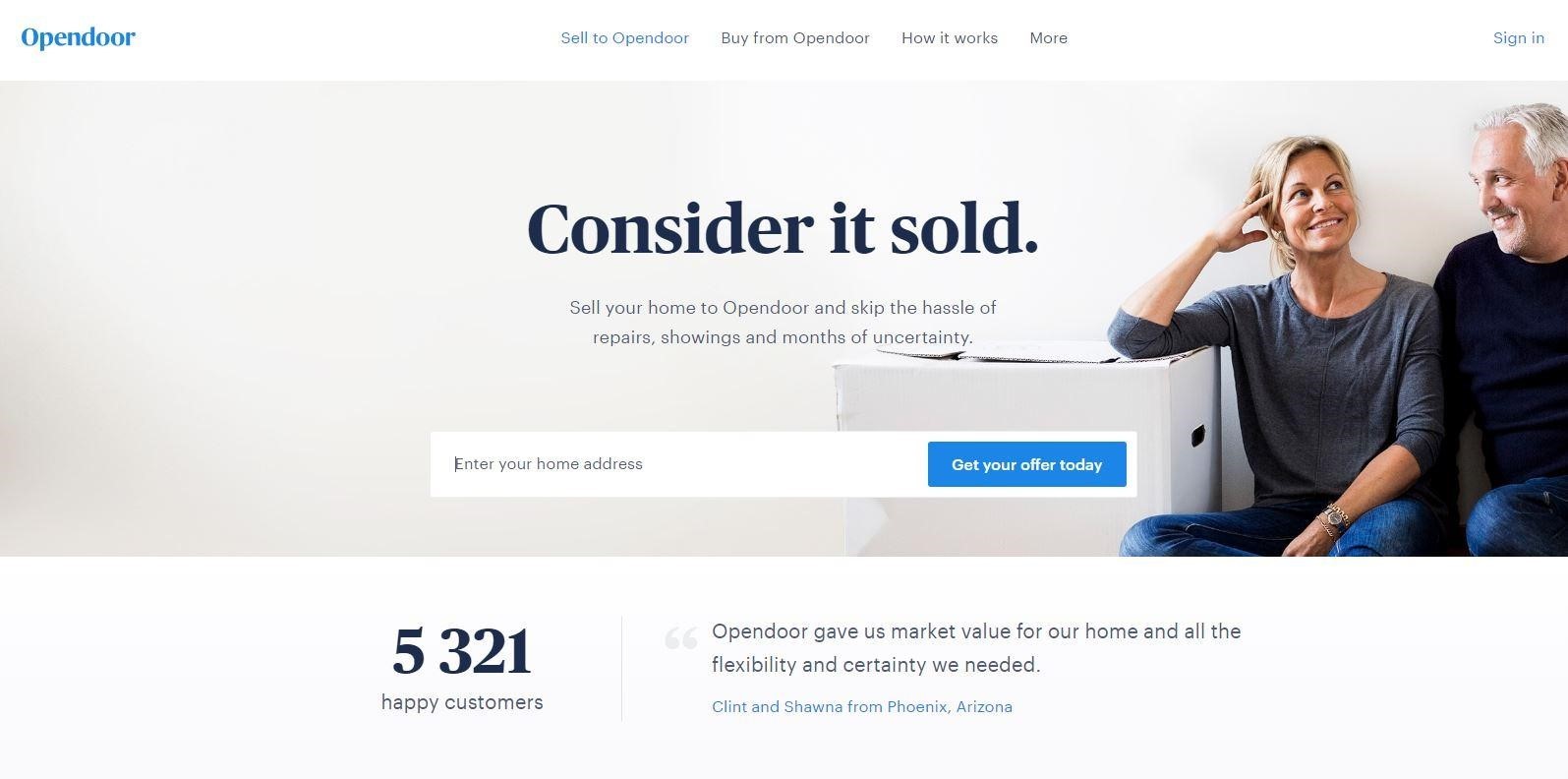Startup of the day, start (February 2017)

My name is Alexander Gorny, recently I have been working in the Mail.Ru Group to search and study new startups for buying or investing. In real deals, we focus mainly on the Russian market, but in order to form an opinion on a local project, it is always a good idea to look for foreign analogues. In addition, it is often very useful to just look at the growing stories from around the world: if you like it, then you can find something similar here, knowing what to look for. And at some point, there was so much interesting in my head that it seemed like a crime not to share it; So at the beginning of 2017, my blog # start-up, which I lead on Facebook , ICQ and Telegram , started.
Today I present to Habr a small digest of the most interesting projects I described in February. Only five of the twenty-eight passed the rigorous selection. For technical reasons, the release was delayed for almost a month, but it seemed that there was no urgency, not a single startup had time to close or pivotnitsya strongly during this time. I have reduced the descriptions a bit: the text has already turned out to be very long, there are a few more details and comments on the blog, and here only the most important.
1. Magento - the story of a successful opensource

Magento Company is a manufacturer of the same name opensource software for an online store. Everything is written in PHP, lies on GitHub, everyone can download, put on their server, change design templates and run their own online store. It is clear that there are dozens, if not hundreds of analogs on the market, but Magento, apparently, is objectively one of the best and most functional. At least, it is definitely the most popular on a global scale: its software is used by every third online store of those working on standardized software and every sixth of the top 1000 American sellers, including, for example, Burger King.
')
The popularity of the product justifies the development of add-ons. The completeness of the plug-in store can be judged by about twenty extensions for accepting payment in bitcoins and five for generating XML for Yandex.Market. Through a separate paid ($ 500) plugin, written by a third-party company, the opportunity to create your mobile application is also implemented.
In terms of the business model Magento has not invented anything new, but it uses all the obvious. Offers paid training and certificates, an Enterprise version with a couple of plug-ins enabled by default and support, as well as cloud-based Magento deployed on their servers. There, probably, all sometime also will pass. Support tariffs, by the way, start at $ 15,000 a year: Magento doesn't sell itself cheaply.
The history of the company, and not the product, is complicated: it was bought by Ebay for a long time ago for $ 180 million, and in 2015 it was sold to venture capital funds, complete with several other B2B services. The new owners of Magento quickly separated, and now it is again an independent company, which again raises money for expansion. The last transaction - $ 250 million estimated at 450 million. In five years from now, Ebay will sell again, but for a couple of billions, probably.
2. Karhoo - the story of a solid facepalm

Karhoo is a British taxi ordering application that worked according to the model that taxi companies ask Yandex.Taxi for: it did not affect prices, but gave the user a choice. “Taxi A will arrive in 3 minutes and will cost £ 20, taxi B will arrive in 5 minutes for 18 pounds, and B - in 7 minutes for 15 pounds, who are we calling?” It is clear what the plan was, on paper this approach some advantages:
- For taxis, this is not an application, but a dream, everyone is happy to connect, even if there are few orders: they get at least some passengers and only strengthen their brand, no drawbacks.
- If there are a lot of taxis, and there are a lot of cars on the line, it means they will come to the call quickly: this is what the passenger needs.
- You do not need to do anything offline, the taxi fleet is explicitly responsible for transportation, this is completely transparent to the user, you can not fight for the quality of the service itself, but only be engaged in programming the application.
All in the black. On paper. Under the paper Karhoo and got some crazy money, who writes - 250, who - 300 million dollars of funding.
In reality, everything went wrong. First, Uber was still cheaper. Secondly, user experience, and therefore loyalty. Extra clicks, guaranteed extra wait (who will not choose the cheapest because of some extra minute), in the end, the magic turned out to be less, and the good old taxi - more. Third, Uberpool. He already has one in London, and Karhoo didn’t actually have it, and in theory it was more difficult to make it.
The project worked less than a year and closed, the money ran out, there was nothing to pay wages. It seems that they did not have time to get their 250 million, they didn’t have time for financing, and in reality they ate only 50 million when the tranches stopped. But this is very, very, very much for one city and the lack of offline infrastructure.
The remains of the former luxury bought Renault for 16 million dollars. The system is not working now, there are no users left, i.e. only software and the rest of the team were bought. It seems again overestimated.
3. Zhihu - the story of a successful clone

Zhihu started as the Chinese Quora, the service of "type of smart" questions and answers, did not hide it at all and was not ashamed of its secondary nature. In 2010, Quora was fashionable and obviously successful: cool founders, cool investors, cool audiences, interesting content.
And the Chinese have declined how not to incline such beauty. Not pixel-by-pixel, but the difference in projects was at the level of “before and after redesign,” nothing more. At first, everything was good for those and others: people appeared, questions and answers began to gather, SEO traffic flowed to the base of questions, the model was confirmed. And then everyone went their own way. The American project is almost eight years old, tens of millions have been eaten away, and have never learned how to earn anything seriously and, in fact, haven’t come out.
Zhihu did both, for which he received the latest valuation of a billion dollars. The mobile application is probably executed better and is certainly being promoted much more aggressively than Quora. As a result, they are about ten times more popular than Americans on smartphones in a Chinese audience comparable to the English-speaking world. Well, the money, of course. Advertising and paid accounts appeared on the service for a long time, and in 2016 they invented Zhihu Live - in fact, paid webinars. A star or just a pumped-up account answers questions from the public for an hour, and ordinary people pay for the opportunity to listen to it or ask something. The commission, naturally, gets to service.
4. Augmedix - the history of the use of technology in everyday life

Imagine the usual appointment with a doctor of a “non-surgical” specialty - a therapist, a neurologist or an allergist. In addition to his direct work, finding out the diagnosis and prescription of treatment, the doctor simultaneously collects a bunch of text: after all, the entire substantive part of the conversation, all the information received from the patient, all appointments must end up in the computer system.
The founders of Augmedix decided that such a combination of duties is extremely inefficient, because an American doctor earns twenty times more than a good secretary with knowledge of English in Bangladesh, and this can be used.
Augmedix offers a cheap assistant from a faraway country who will save the doctor from a significant part of the routine. Enough to wear before taking Google Glass, and in the room is an invisible typesetter who sees, hears and takes over all communication with the computer. He writes down everything that is pronounced in the information system, and everything that a doctor needs to recall is pulled out of it and shows glasses on the screen.
The price of the service is about 2 thousand dollars per month per person: this is enough for a good salary in Bangladesh and an excellent margin. On the other hand, the doctor or clinic repeatedly regain their costs by reducing the time to receive.
The market for Augmedix is gigantic, it will be difficult for a competitor to appear, because training secretaries to understand medical language is a nontrivial know-how, and Augmedix will probably go deeper into it every day. In five or ten years, this kind of work will probably be able to do AI, but Augmedix with the accumulated client base and the accumulated Big Data will have every chance to be the first here. In general, it seems, the company is clearly moving towards great success. So far, in three years, she has reached the estimate of $ 150 million.
5. Opendoor - the story of really big money

The American Opendoor and a couple of its competitor clones are implementing a business idea that is charming in its impudence: they simply buy the houses they sell in large quantities in order to find the willing person on them. A kind of stall "We buy used phones" on the top crust, but not for smartphones with a red price of $ 200, but for goods a thousand times more expensive.
From the seller’s point of view, this is an ideal service: I went to the site, clicked, a day later I received an offer with a price calculated on “a thousand signs and an ingenious Big Data”, after a couple of days the inspector came to add deductions for the breakdowns not indicated in the application, another week later already on the bill. No conversations with muddy agents, no months of waiting, no dozens of people who are treading on their beloved home, asking idiotic questions, and then never buying. Yes, of course, the price is obviously lower than with the direct sale: Opendoor should get its margin, it is not hidden, but it's convenient! Compared with the usual scheme through the usual bulletin boards, the seller loses from 3 to 10% of the value of the house, depending on the circumstances and how many agents were excluded from the process.
Earning your interest, a startup is very risky. Even if we do not take into account possible errors in the assessment, even macroeconomic risk is terrible: in order to eat all the possible profit of the service, a rather sharp twofold drop in the market every six years.
But in the USA no one believes in such perturbations, and insane money is invested in the model. Opendoor itself spent $ 110 million on its current position - about 5,000 houses (50 million margins) were resold in three cities - and received another 210 million to expand the geography of the United States (more than a billion) and another 400 million loans proper purchase of houses. Launched the other day, Offerpad was launched with 30 million for development and 230 million debt for houses - just for plans and a presentation.
* * *
I hope it was interesting. See you in a couple of weeks with the March sequel - or in my personal blog, where notes are published every day.
Source: https://habr.com/ru/post/324950/
All Articles